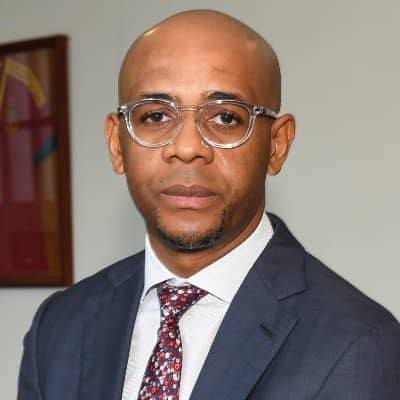
It was a conversation I had with a close friend that set me on the path to writing this article. We were discussing the stampede that claimed the lives of 35 children in Ibadan, and I was struggling with a difficult question: Was it poverty that drove this catastrophe, or was it something else, greed perhaps? My friend, with his usual fervor, argued that greed was to blame. He pointed out how people came from neighboring states, filling the venue far beyond the expected numbers.
Adults, not children, dominated the crowd, and that, he argued, was a clear indication of greed. On the other hand, I maintained that it was poverty. The desperation for free or discounted entertainment and relief was just too great to ignore, especially in an environment where resources are scarce. The mismanagement of the event only amplified this desperation, leading to disaster. That discussion is what ultimately led to this piece.
In just one long week, Nigeria witnessed three devastating stampedes that claimed the lives of over 50 people and left scores injured. From a children’s funfair in Ibadan to a charity event in Abuja and a palliative distribution in Okija, these tragedies are hard reminders of systemic failures that continue to plague the nation. While the immediate triggers vary, the underlying causes point to a complex web of negligence, poverty, and lack of institutional oversight.
The first of these tragic events unfolded at the Islamic High School in Orita Bashorun, Ibadan, during what was supposed to be a joyous children’s funfair. At least 35 young lives were lost, some others injured, as chaos erupted due to poor crowd control. Initial investigations suggest that the situation spiraled out of control when entry fees were suddenly reduced, and some attendees were allowed in for free. This mismanagement, coupled with the sheer number of attendees, led to panic and a deadly stampede before the event had even started.
In Okija, Anambra State, another cold incident occurred during the distribution of palliatives by Chief Ernest Obiejesi, a prominent community philanthropist. The rush for basic necessities, rice, vegetable oil, and money ended in tragedy as a large crowd surged uncontrollably toward the venue’s entrance. The victims, mostly women and children, were crushed in the melee, highlighting the desperate circumstances of many Nigerians who rely on such donations for survival. Shoes and personal items strewn across the chaotic scene bore silent witness to the panic and despair that ensued. The event, meant to bring relief, instead became a deadly race for survival, with those in the greatest need bearing the highest cost.
As if these were not enough, tragedy struck again in Abuja at the Holy Trinity Catholic Church in Maitama, where 10 people, including four children, lost their lives during a charity food distribution. The event, intended to provide sustenance to the vulnerable and elderly, became yet another grim spectacle of desperation and chaos. Despite the police’s emphasis on the need for organizers to notify authorities of such events, the warning came too late for the victims of these poorly planned initiatives. Much like the other events, a lack of adequate preparation led to an unmanageable crowd and a fatal disaster.
Each of these tragedies reveals a pattern of preventable errors and systemic neglect. The event organizers clearly underestimated the scale of attendance and failed to implement basic safety measures, such as limiting access, arranging staggered entry, or employing trained security personnel. Their actions—or inactions—turned moments meant for joy and relief into scenes of unimaginable grief. Despite the pure intentions of those involved, these oversights have cost lives.
However, the blame does not lie solely with the organizers. These stampedes expose the depth of poverty and inequality in Nigeria, where millions of citizens are forced to scramble for scarce resources. For many, a free meal or a discounted funfair is not just a luxury but a lifeline. This desperation, fueled by years of economic mismanagement and government inaction, creates fertile ground for such tragedies to occur. The desire to receive a free meal or a discounted service often drives people to act recklessly, as they risk their safety in the hope of gaining something they cannot afford otherwise.
Institutional failures also loom large. The absence of effective regulatory frameworks to ensure public safety at large gatherings leaves citizens vulnerable. While police might have issued directives for event organizers to seek police approval, these measures remain reactive rather than preventive.
READ ALSO: OPINION: Behind the Numbers: Nigeria’s budget and its human cost
Globally, stampedes are not unique to Nigeria. The Nzérékoré Stampede in Guinea early this year, during a soccer match, claimed 56 lives. In Hathras, India, over 120 people lost their lives in a funeral stampede earlier this year, and just recently, a Congo Music Concert Stampede claimed many lives. These events highlight that the problem is not isolated to Nigeria but is a broader, international issue. However, the root causes—poor planning, inadequate crowd control, and desperation—remain consistent across borders.
In response to these recurring tragedies, there is a pressing need for a more structured and robust legal framework to govern public events in Nigeria. Drawing inspiration from the UK’s Martyn’s Law, a legislation designed to ensure public spaces are prepared for potential threats and mass gatherings, Nigeria’s House of Representatives and Senate should look into similar laws. These laws could mandate crowd control measures, event planning approvals, and thorough safety checks.
While I understand the anger and frustration of many Nigerians, especially the authorities who are arresting organizers in these cases, I can’t help but feel a sense of compassion. Yes, the organizers failed in their duty to ensure adequate preparation, and that failure led to the loss of innocent lives. But their intention was, undoubtedly, pure, to bring relief to people in need. It’s important to recognize that these tragedies stem from systemic neglect, not malicious intent. Arresting the organizers may serve as a temporary solution, but it does not address the underlying issues that caused these stampedes in the first place.
Moreover, technology offers innovative solutions. Mobile ticketing systems and pre-registration platforms could help control attendance and prevent overcrowding. Additionally, public education campaigns can play a crucial role in mitigating such disasters. Countries like South Korea have implemented community training programs on crowd behavior and safety during emergencies, having learned their lesson after the Seoul Halloween crush. In Nigeria, similar initiatives could instill a culture of patience and awareness, reducing the risk of panic-induced stampedes.
Addressing poverty, however, remains the cornerstone of preventing these tragedies. Until the desperation that drives people to risk their lives for basic necessities is addressed, the cycle of loss will persist.
Now, until Nigeria confronts its systemic failures head-on, through better planning, technology integration, public education, and poverty alleviation, the cycle of avoidable tragedies will persist, leaving more families shattered and more lives lost. May the souls of departed find a place of peace.
AUTHOR: Ogungbile Emmanuel Oludotun
Articles published in our Graffiti section are strictly the opinion of the writers and do not represent the views of Ripples Nigeria or its editorial stand.
The post OPINION: How mismanagement, poverty, and negligence sparked three stampedes in one week appeared first on Latest Nigeria News | Top Stories from Ripples Nigeria.

.png) 5 hours ago
1
5 hours ago
1







.png)








 English (US) ·
English (US) ·